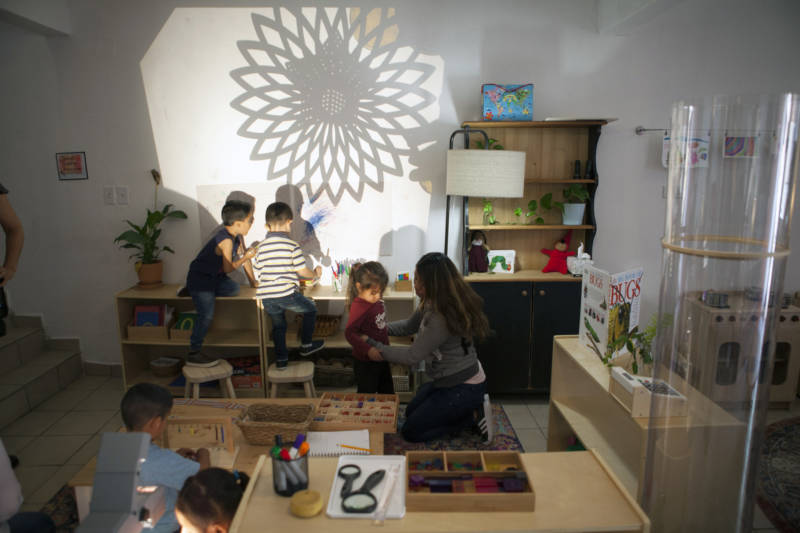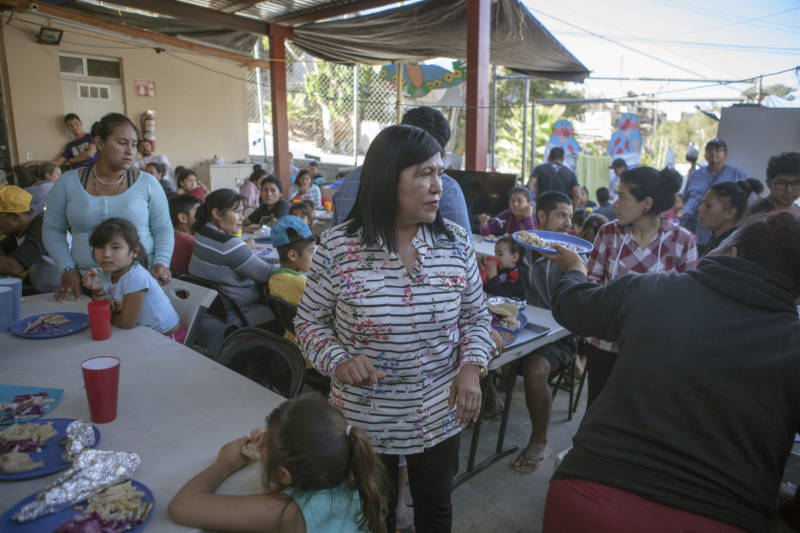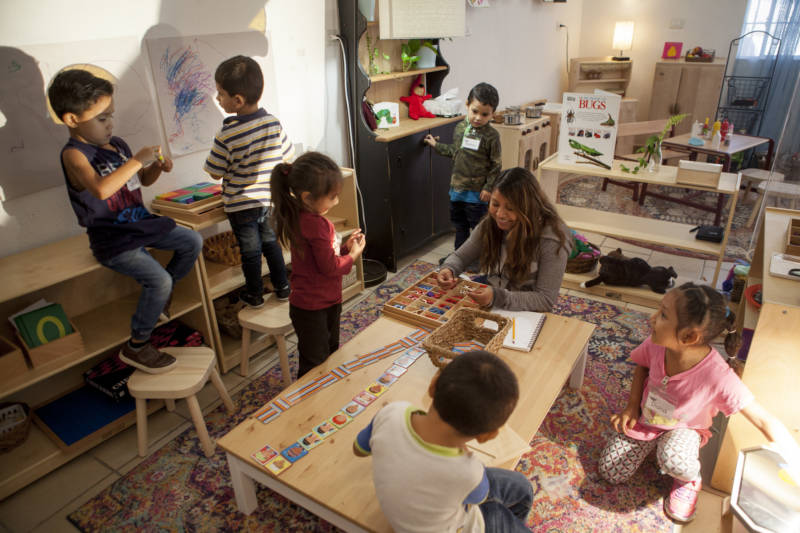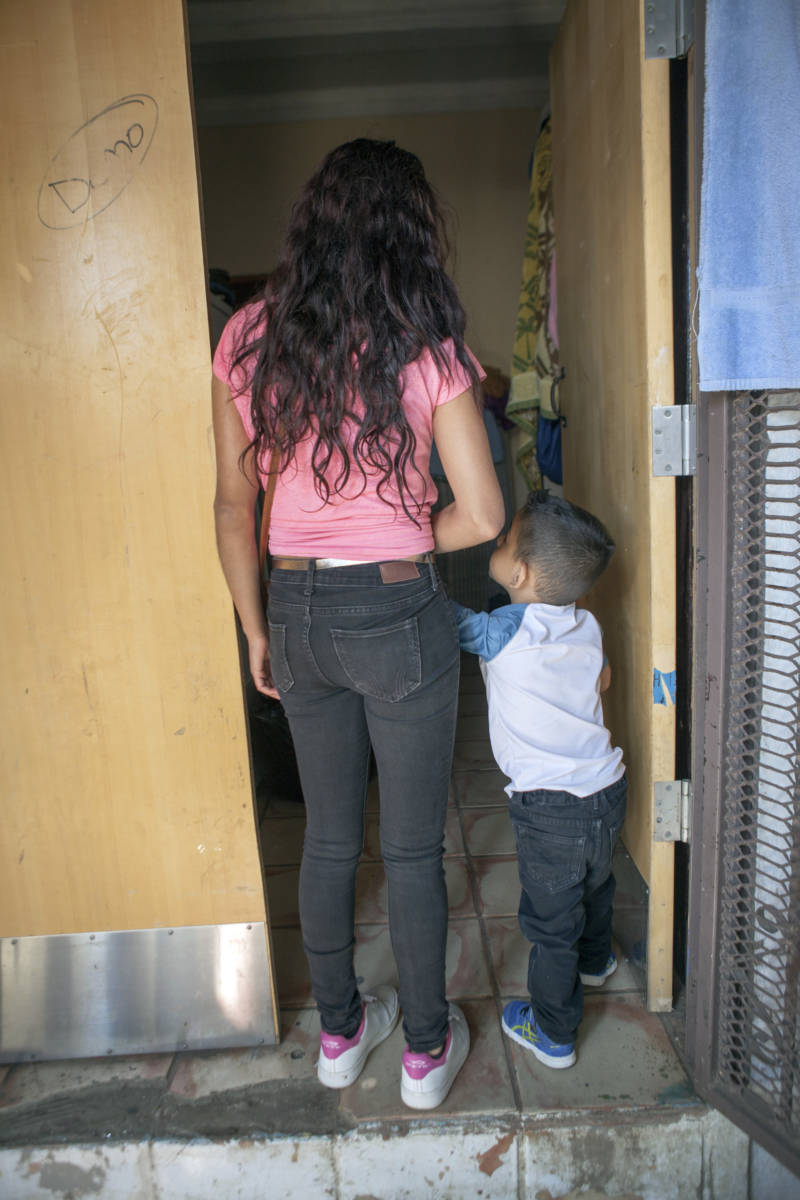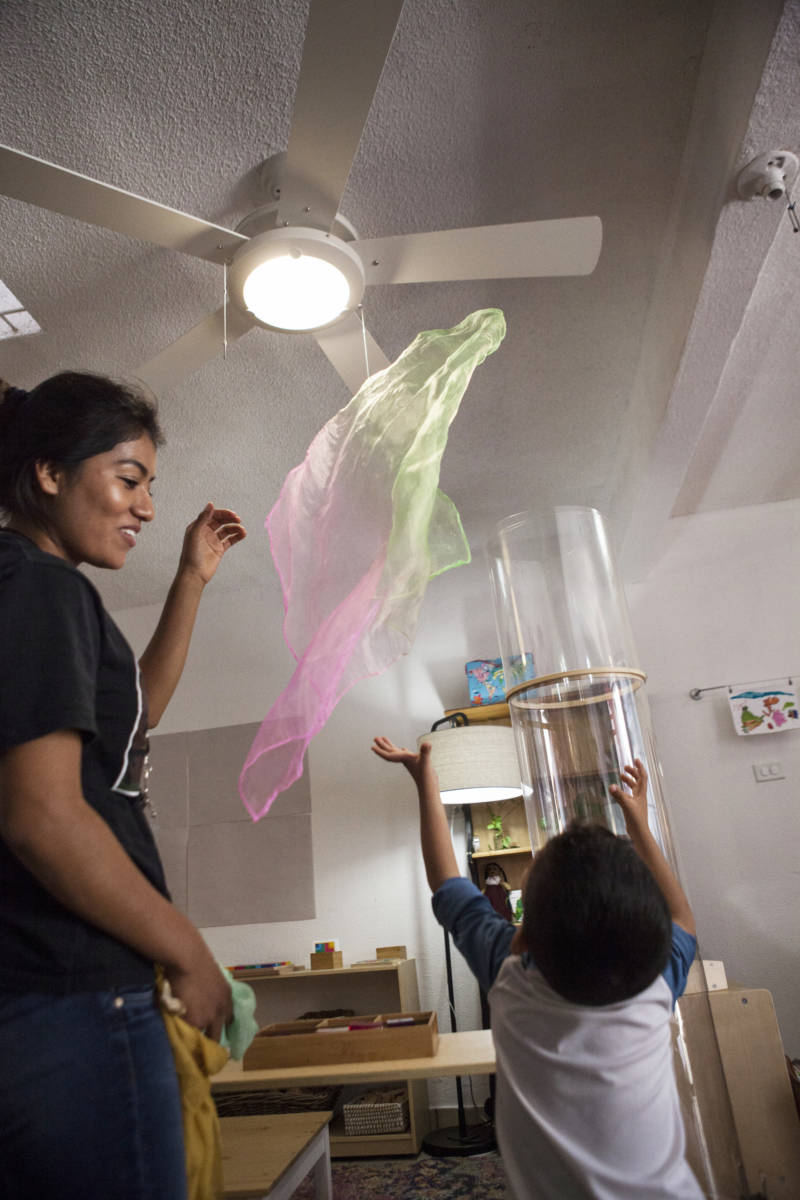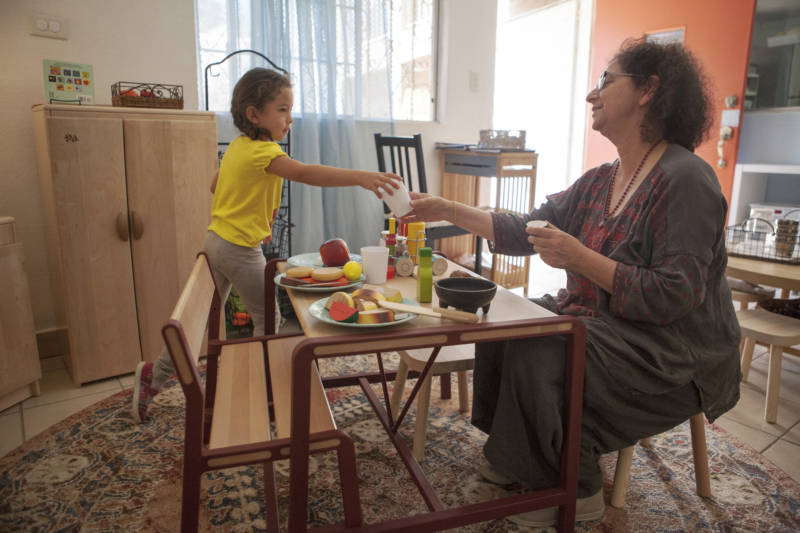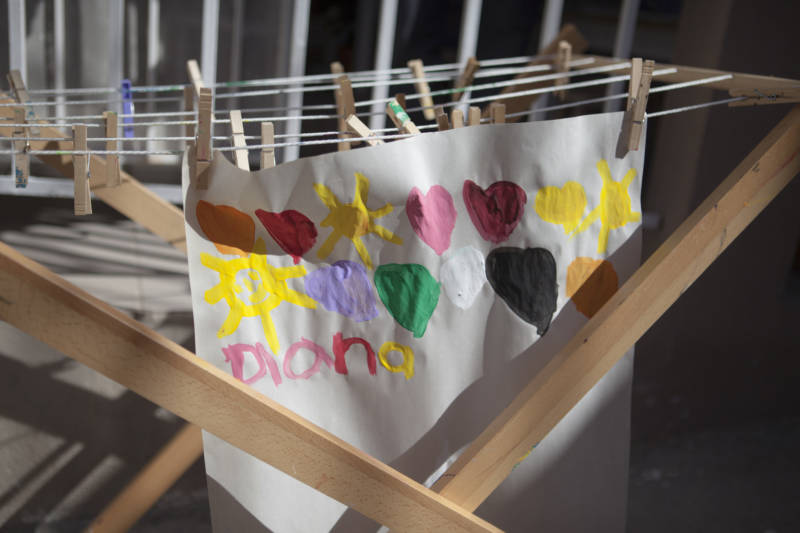Classical music plays, silk curtains blow in the wind and comfy couches offer a place to curl up with a book. There are wooden toys, colorful magnetic blocks, and crayons organized by color in glass jars. Children use light projectors to make patterns and shapes on the walls.
It may sound like a high-end early childhood education center in California, but this is Tijuana.
The students and their parents have fled violence in Central America, or other parts of Mexico, and are waiting for their asylum applications to the U.S. to be processed.

A California woman opened this school, the Nest, in September. It’s the first one of its kind attached to a migrant shelter in the Mexican border town.
They welcome children 6 and under, and give them a chance to spend time away from the crowded shelter across the street — and to just be kids.
“This isn't a Band-Aid solution,” said founder Alise Shafer Ivey, a veteran early childhood director from Santa Monica. “This isn't sweetening the day of a child who might be stuck on a mattress in a shelter. Of course we're sweetening the day of that child, but it's so much more than that. This is about really setting a trajectory that will have an impact.”
Families Sharing a Single Mattress in Crowded Shelter
Patricia’s 2-year-old daughter is one of the new students at the Nest. On the trip to Tijuana, Patricia's two girls kept asking where their dad was. But how could Patricia tell them? They couldn’t even go to the funeral. It was too dangerous to show up to bury her husband.
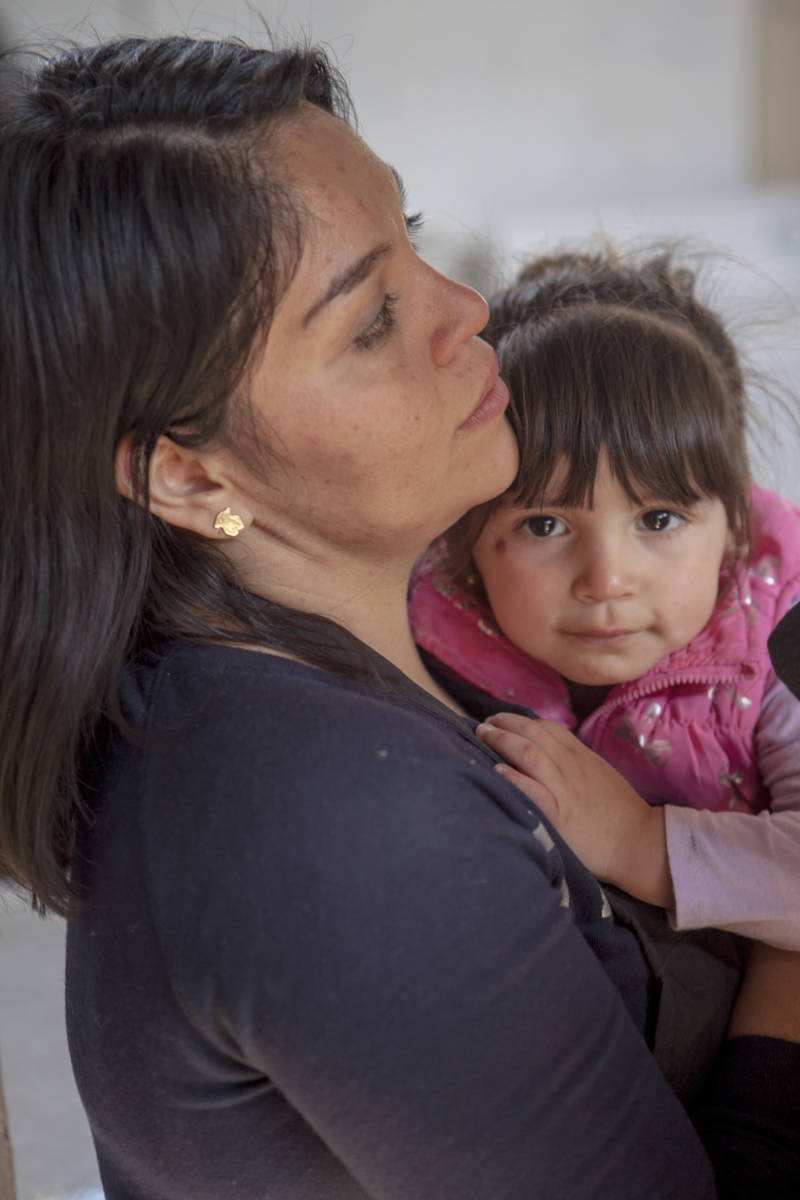
He had been a small-business owner in the western state of Michoacán, which has seen a recent spike in violence linked to drug cartels. When some men arrived at his shop demanding a bribe, he asked for more time to get the money. They killed him. Patricia and her girls, the older one is 5, fled that afternoon. (KQED is not using Patricia's real name to protect her identity.)
Patricia didn’t look back until she got to the shelter in Tijuana. It felt overwhelming: more than 150 people sharing four bathrooms, a single washing machine and one mattress to share with her girls.
Families like Patricia’s are arriving in Tijuana at a time when applications for asylum at the US-Mexico border have been surging.
Many are waiting in crowded shelters at the border for longer periods under the Trump administration’s controversial “Remain in Mexico” program. Although it’s been challenged in court, the program has required more than 56,000 asylum-seekers (mostly Central Americans) to wait in Mexico while their cases are processed in the U.S.
At the same time, a spike in cartel violence has forced a lot of Mexican families like Patricia’s to seek asylum in the U.S., too — and find space in overflowing shelters in border towns like Tijuana.
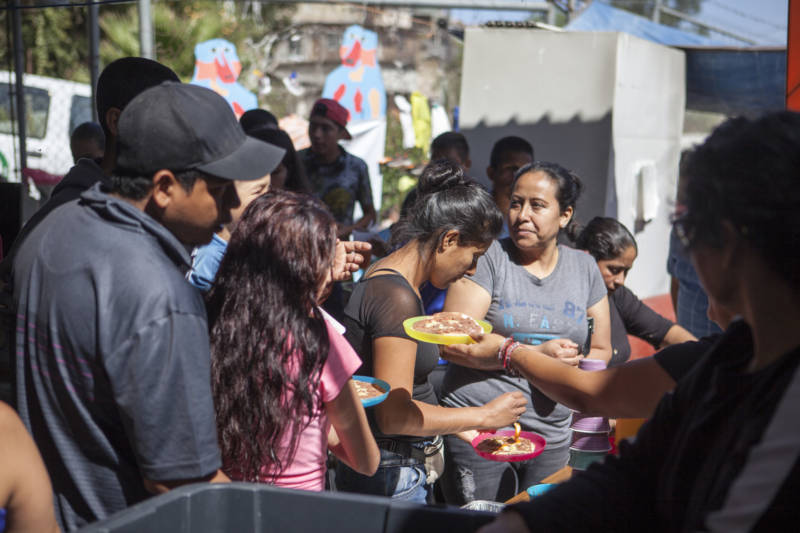
“These kids have seen things no child should see,” said Ivey. “They’ve been stripped of their homelands, they’ve left their families behind. They’ve been stuffed in trunks of cars and crossed over borders.
“To think we’re going to deliver them to a kindergarten in the U.S. and think it’s going to go well? Not necessarily,” she added.
Research shows kids who have a hard time adjusting socially before age 5 have a lot of trouble catching up. If kids who’ve experienced the trauma of fleeing their homes can play and relax away from the stress of the crowded shelter, it could give them some sense of stability, experts say.
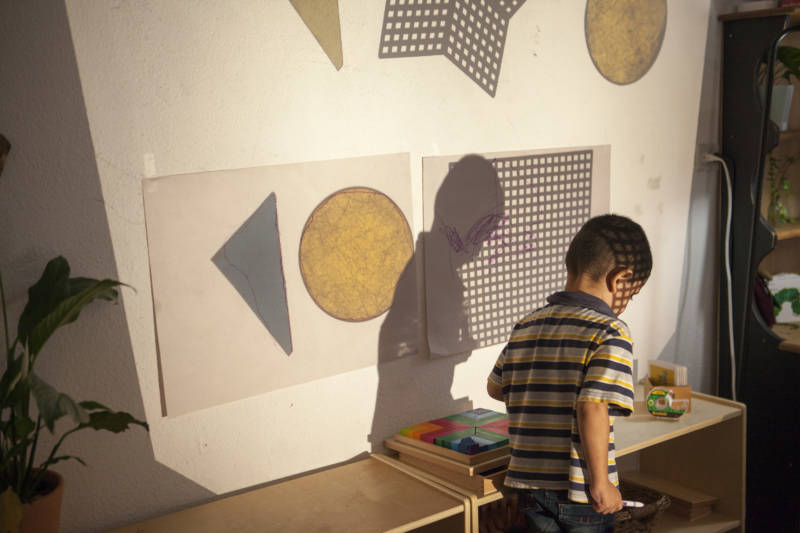
An Unlikely Pair Share a Common Mission
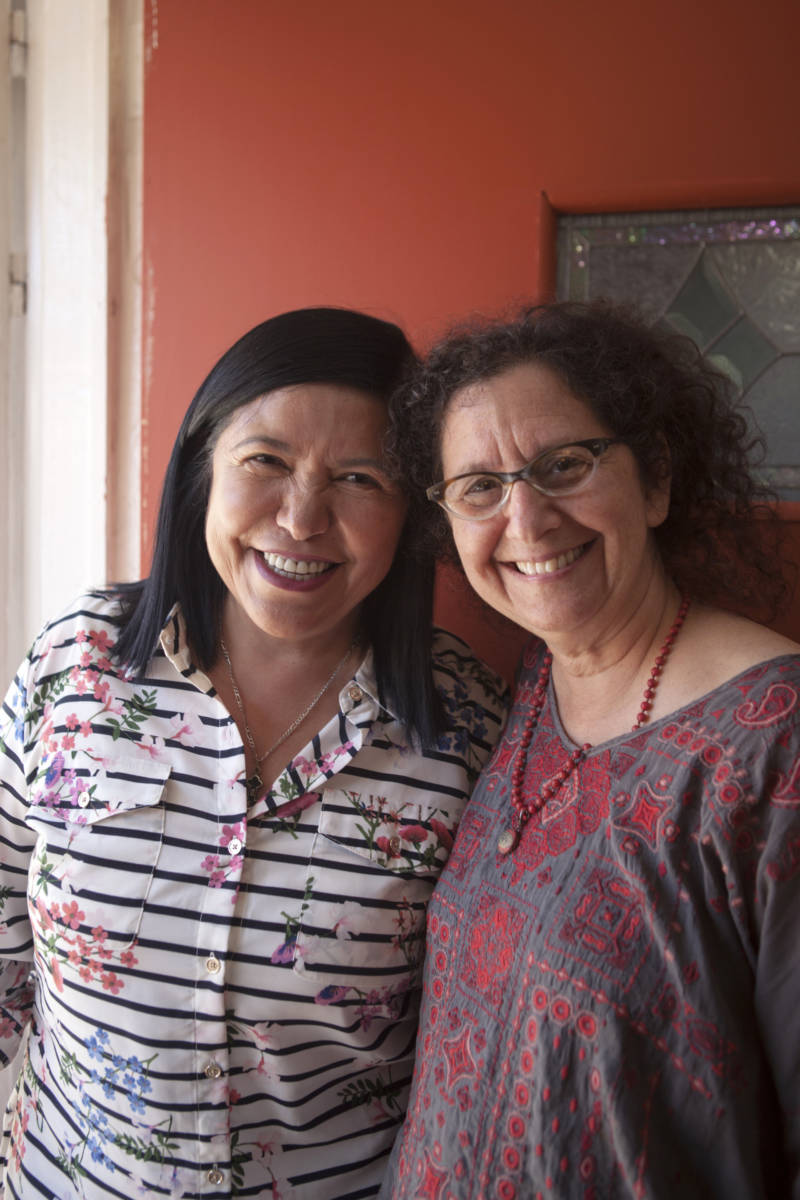
The idea for the Nest began with a trip Ivey took to Lesvos, Greece, after retiring from decades of directing the Evergreen Community School in Santa Monica. She met a relief worker who invited her to visit a refugee camp, which then housed mostly Syrian migrants.
Children were “digging in the dirt, playing with nails in their pockets,” Ivey said. “They had old cigarette lighters that they had found. There was nothing for children.”
Ivey offered to set up a space for refugee kids to play. She returned to California, raising $10,000 through a nonprofit she helped found, the Pedagogical Institute of Los Angeles. She went on to set up Nests in Samos, Greece, then two more in the Congo.
Early childhood teachers, many from California, use their vacation time to volunteer for a few weeks at the Nests. They train refugees to work with young children, a skill that could help them find a job if they get asylum in a new country.
The Tijuana Nest got its start after Ivey visited the shelter across the street, where Patricia and her girls sought refuge. Ivey instantly connected with Leticia Herrera Hernández, who runs the shelter. They’re both strong believers in prioritizing the needs of children, especially when parents are going through trauma.
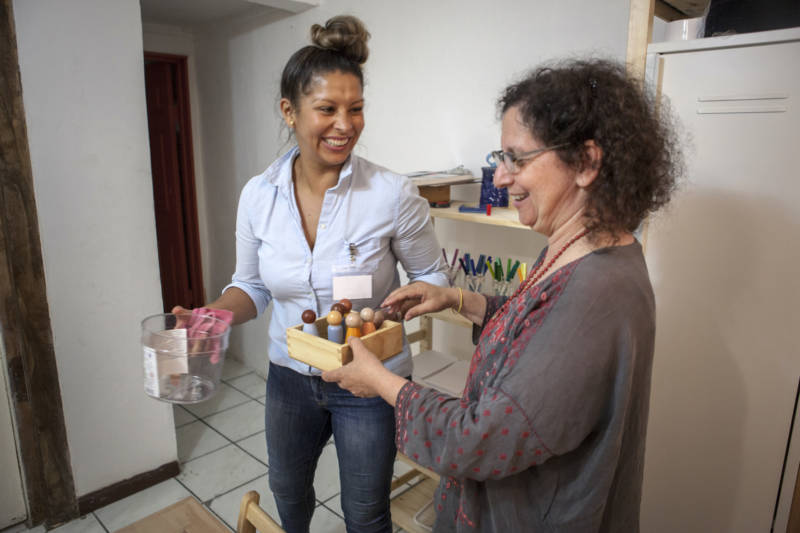
Herrera had already worked with a California group to set up a makeshift elementary school next to her shelter, in an old bus. But there was nothing for toddlers and preschool-age kids.
“The kids would just spend their days playing on their parents' phones, having tantrums, and we’d be trying to get them to play to entertain themselves,” Herrera said in Spanish.
